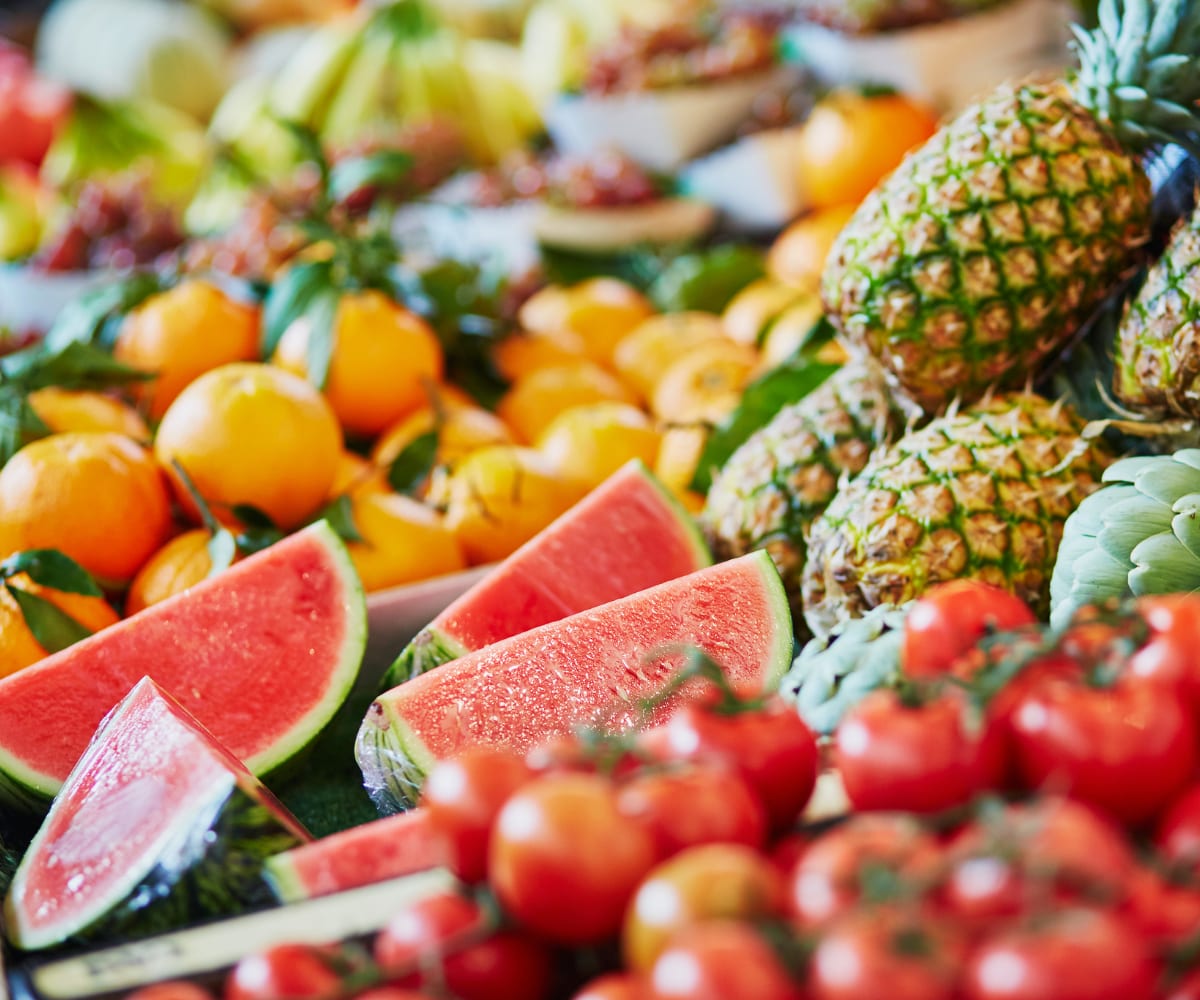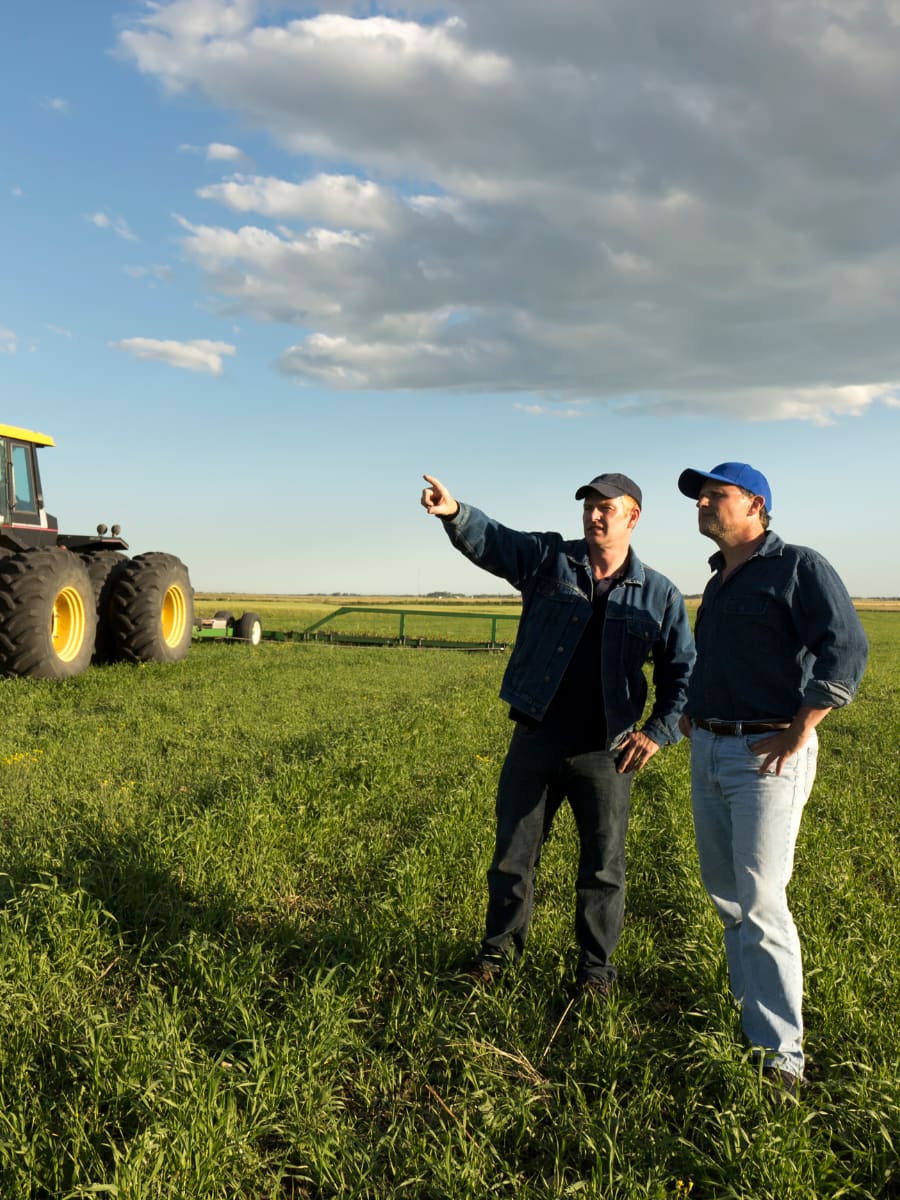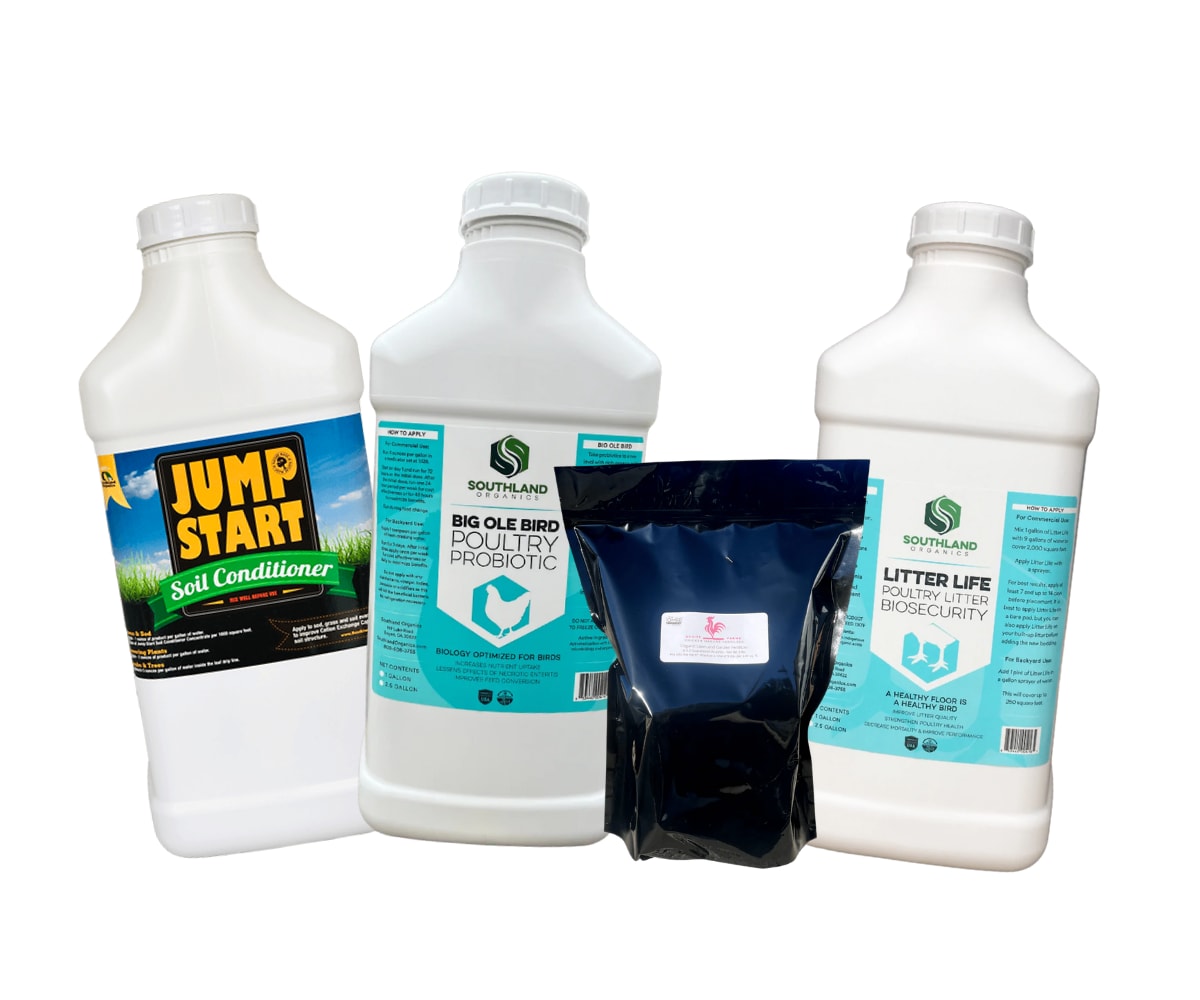At Southland Organics, the meaning of “organic” is important to us. (It’s literally in our name!) But the term "organic" is a lot more complicated than you may realize. It’s commonly used as a blanket term to signal that a product is healthier, safer and better for the environment. But is that always true?
It's time to bridge the gap between what we hear about "organic" and what it actually means.
Note: This video and blog are not exhaustive by any means. Organic food is a big topic with a lot of points to be made, and we only explore a few of them here.
What does "organic" mean?
To start with the significance of the word, "organic" itself just means "containing carbon"—something that is living or was living. Considering this definition, we can identify many organic things around us.
Leaves are organic.
Grass is organic.
Fruit is organic.
Almost 20% of our bodyweight is carbon—so even we're technically organic!
If you studied organic chemistry, you know all of this, plus a whole lot more about the chemical properties of organic matter.
Organic Food Labels
When many of us hear "organic," we think of organic food. Food items, from broccoli to potato chips, can be labeled as “organic.” And in non-food products, like makeup and skin care, the word “organic” on the label means even less. The USDA is proud to let you know that:
- The NOP regulates the word “organic,” the USDA organic seal, and the phrase “USDA-certified organic/USDA organic.” 7 CFR 205.100 What has to be certified
USDA Certified Organic
There are various regulatory boards across the U.S. and other countries that certify products as being organic, and they have a strict set of rules to qualify an item as such.
The United States Department of Agriculture (USDA) is the most widely known and used organic certification in the U.S. The USDA’s organic standards are based on the entire system of farming: soil quality, animal raising practices, pest and weed control and use of additives in processing. To make sure farmers are meeting these standards, farmers are required to document their processes and get inspected on an annual basis. That means when you see a product with the USDA organic seal, you can rest assured that it meets the USDA's standards.
Certified Organic Standards
Certified organic standards vary based on the type of food item, such as produce, meat or multi-ingredient. According to the USDA, certified organic produce must be grown on soil that hasn’t had any synthetic fertilizers or pesticides on it for at least three years. Certified organic meat must come from animals raised in living conditions that “accommodate their natural behaviors,” that eat organic feed and that are not given growth hormones or antibiotics. Certified organic multi-ingredient foods cannot have artificial preservatives, colors or flavors, and they must meet the produce and meat standards. For information on organic eggs, check out our video on types of eggs.
USDA certified organic foods cannot contain genetically modified organisms (GMOs). Farmers can’t use genetically modified seeds when growing organic produce, and food producers can’t use any ingredients that come from genetically modified crops. Why? Basically, there has been very poor communication on what GMOs are, which has made many people confused about them. Confusion leads to fear, and fear leads to banning the use of innovative technology that promotes sustainable farming in many ways.
BioPreferred vs. Organic: Different Paths to Sustainability
The USDA BioPreferred Program and Organic certification address distinct aspects of sustainability. Understanding these differences can help you choose the designation that best aligns with your product and goals.
- BioPreferred: Focuses on the renewable or biobased content of a product. BioPreferred products are derived from plants, animals, or forestry materials. This program encourages the development of a more sustainable bioeconomy. BioPreferred certification requires your product to undergo independent, third-party lab testing, ensuring unbiased assessment of biobased content. There is no annual fee associated with BioPreferred certification. (https://www.biopreferred.gov/)
- Organic: Focuses on the production methods used to raise crops and livestock. Organic certification prohibits the use of synthetic fertilizers, pesticides, and genetically modified organisms (GMOs). It prioritizes environmental and animal welfare considerations. Organic certification typically involves annual fees paid to a certification agency.
Choosing the Right Designation:
- If your product is made from renewable materials, BioPreferred certification can demonstrate your commitment to a sustainable bioeconomy, with the added benefit of transparent, lab-tested verification.
- If your product is derived from organically grown or raised materials, Organic certification highlights your commitment to responsible agricultural practices.
- Some products might benefit from pursuing both BioPreferred and Organic designations, showcasing a well-rounded approach to sustainability.
Clean Fifteen and Dirty Dozen

While there are a variety of reasons why people choose to eat organic produce, one of the main reasons is out of concern for ingesting pesticides. Many synthetic pesticides are made with harsh chemicals that could be harmful to your health. About 75% of conventionally farmed produce still has trace pesticide residues after washing. However, not all conventionally farmed produce is grown with the same amount of pesticides. Certain types of produce actually have very little trace pesticide residues by the time you wash or peel them.
Each year, Environmental Working Group (EWG) publishes a “Clean Fifteen” list of the produce items that have the lowest amount of pesticide residues and a “Dirty Dozen” list of the produce items that have the highest amount of pesticide residues.
2023 Clean Fifteen List
65% of samples from the following fruits and vegetables had no detectable pesticide residue after preparation. As far as ingesting pesticides goes, these 15 types of produce are almost the same as their organic counterparts.
-
Avocados
-
Sweet corn
-
Pineapple
-
Onions
-
Papaya
-
Sweet peas (frozen)
-
Asparagus
-
Honeydew
-
Kiwi
-
Cabbage
-
Mushrooms
-
Mangoes
-
Sweet potatoes
-
Watermelon
-
Carrots
2023 Dirty Dozen List
The following 12 types of produce have the highest occurrence and concentration of pesticide residue after preparation.
-
Strawberries
-
Spinach
-
Kale, collard and mustard greens
-
Peaches
-
Pears
-
Nectarines
-
Apples
-
Grapes
-
Bell and hot peppers
-
Cherries
-
Blueberries
-
Green beans
If one of your favorite fruits or vegetables made the Dirty Dozen list, don't panic. When an item makes this notorious list, it doesn't mean you have to stop eating it altogether (unless you choose to, of course!). All 12 of the items have great health benefits and can be part of a nutritious diet. Just wash them as best you can. If you're concerned about pesticides and have the budget to buy some organic produce, the Dirty Dozen items would be the best ones to prioritize.
Organic Agriculture

While switching conventional farms over to certified organic farms may sound ideal, the concept raises some concerns, including 1) organic farms typically have significantly lower yields, and 2) produce from organic farms can be more expensive for consumers. This is okay to an extent, but if all farms moved to exclusively organic food production, we would likely not have enough food to feed our growing population.
A 2016 article in Nature Communications touched on this concept. In the study, researchers explored 500 scenarios in a hypothetical zero-deforestation world to determine which variables would create a feasible outcome. In this case, “feasible” means being able to feed the population in 2050. Variables included human diets, amount of cropland expansion and type of crop farming, including organic farming.
Although the merit of organic farming was not the focus of the article, the researchers’ projected feasibility of feeding our world with exclusively organic crops and no increase in deforestation is eye-opening. Out of the 130 organic scenarios, 79 (69.8%) scenarios were found to not be feasible. Of the 51 feasible scenarios, 33 of them assumed that people were eating meatless diets. That means that only 13.8% of the scenarios found it to be feasible to grow all crops organically, avoid an increase in deforestation and accommodate meat diets.
According to the study, a world of exclusively organic farms is only feasible if 1) animal agriculture is reduced, 2) cropland is extremely expanded or 3) the hypothetical zero-deforestation scenario is broken.
While it may be hard to believe any scenarios exist in which zero deforestation is feasible, they do! In the study, almost 60% of the zero-deforestation scenarios were deemed to be feasible. But only 10% were feasible and assumed all organic crop production.
Although this study is speculative—not predictive—and limited in a few ways, it illustrates that it's most likely not feasible to have a world where all crops are grown organically. Instead, a mix of conventional and organic agriculture may be best, as there are efficient and sustainable practices of both types of food production.
What "Organic" Means to Us

At Southland Organics, it all starts with organic matter. What do we mean by this? Well, most of our products are based on organic matter. They bring life to lawns, gardens and even poultry guts in the form of healthy microbes.
Why aren’t ALL our other products certified organic? Well, it’s an expensive and time-consuming process. We’re a small business, and the resources necessary to keep up with certifications for our growing line of products are just more than we want to spend on a stamp for our labels. We know our products are organic, safe, natural and good for the earth. You can look at the ingredients and see this, and we’re happy to answer questions about our products if you ever have them.
Bridging the Gap
The term "organic” is much more complex than what meets the eye. Organic practices often promote soil biodiversity, soil health and less harmful chemicals in the environment. But organic doesn't always mean healthier, safer or more environmentally friendly, and we haven’t even discussed the tricky affordability of organic produce for many of us.
Neither organic nor conventional farming methods are perfect. Organic is not always better, and conventional is not always worse. With this in mind, it’s likely that a blend of organic and conventional methods is what’s best to balance the impact on the earth with the need to feed our growing population.
At Southland Organics, we’re happy to be able to support farmers, business owners and homeowners alike as they grow plants, grass and chickens with safe, natural products that address natural problems on a microbial level. Whether conventional or organic, we’re here to support you in whatever you grow.
Contact Us
We hope you can take this information, go out there, and make the best decisions for you and your family. If you have any questions, feel free to email me at izy@southlandorganics.com or call us at 800-608-3755. In the meantime, keep up with us on social media @SouthlandOrganics.






